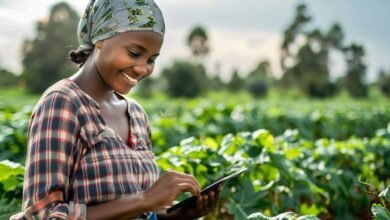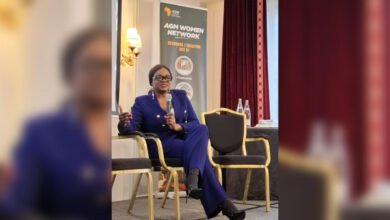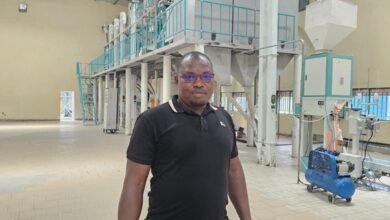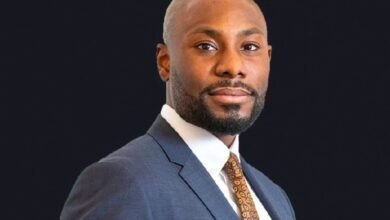Tribune How can we achieve equity in higher education for Africa’s socio-economic transformation?
While female enrolment in higher education has tripled globally between 1995 and 2018, the gender gap is still large in sub-Saharan Africa ‘s higher-ed institutions. Women are particularly underrepresented in the STEM fields due to several barriers that the region must necessarily remove to reach its full socio-economic development potential, argues the CEO of the African Institute for Mathematical Sciences (AIMS) Lydie Hakizimana.
By Lydie Hakizimana*
March 8 is set aside to celebrate international women’s day every year. The theme for this year’s international women’s day is “Gender equality today for a sustainable tomorrow.” This year’s theme is focused on celebrating the contribution of our women and girls worldwide, whose work is influencing both grassroots and policy action for a sustainable future. More so, this day also allows us to reflect on Africa’s socio-economic transformation towards a prosperous future and the role we can play to ensure equity in higher education.
Obviously, equity can be defined simply as fairness, justice, and equal opportunity for all. Globally, female enrolment in higher education has tripled between 1995 and 2018. A shift largely influenced by affirmative action. Despite the rapid increase in educational attainment by women, data indicates that the number of women at higher education levels is higher than the average. However, in the case of sub-Saharan Africa, men are overrepresented, with 73 female students enrolled for every 100 males. Only, between 18 to 31 percent of science researchers in sub-Saharan Africa are women.
Within this framework, the shift in Africa’s role from a consumer to a producer of technology requires investments in human capacity development – particularly in research and development, where we currently have fewer female researchers.
It is necessary to recognize that several factors, including individual and organizational barriers, affect women’s upward mobility in pursuing STEM careers and actively contribute to research and development. That is, to achieve equity in our higher-ed institutions, particularly in research, we must remove all barriers that hinder women’s ability to fully participate in all the educational and non-academic opportunities offered by higher-ed institutions.
In view of this context, the African Institute for Mathematical Sciences (AIMS) has established itself since 2003 as an ecosystem for excellence in Science, Technology, Engineering, and Math (STEM), investing in student and teacher success and connecting science and policy.
« At AIMS, our vision is to lead the transformation of Africa through innovative scientific training, technical advances, and breakthrough discoveries »
At AIMS, our vision is to lead the transformation of Africa through innovative scientific training, technical advances, and breakthrough discoveries. As a contribution to close the gender gap in higher education in sub-Saharan Africa, we are pioneering inclusive access and an inventive model with a proactive recruitment strategy for women. Here is how:
Education and Training: AIMS currently boasts over 2500 alumni from 44 African countries, with more than 806 presently pursuing PhDs and research careers. While AIMS has established a strong pipeline of students over the years, with 33% of alumni being women, it has yet to achieve its goal of gender parity. Hence, in 2021 we launched the Girls in Mathematical Sciences Program (GMSP) in Ghana. The goal is to mentor participants to pursue STEM careers at the highest level in research, training, and industry. The GMSP is a fully-funded, exciting, and challenging 9-month program created for bright, curious, and creative female Senior High School students to unlock their potential in the Mathematical Sciences. Furthermore, we are constantly investing in public engagement and outreach activities to demystify science at the grassroots level, thereby providing mentorship to young girls and encouraging them to pursue careers in STEM. Consequently, we are committed to increasing gender diversity by implementing a robust and targeted recruitment strategy.
Research and Innovation: AIMS’ ambition is to create an inclusive and enabling environment that fosters discovery and advances in theoretical and applied science. In this perspective, we have for example encouraged women’s research on climate resilience. Women are the most impacted by climate change, especially in poor communities where their livelihoods depend more on climate-sensitive natural resources. Conversely, women have historically had few opportunities than men to make significant contributions to the fight against climate change. Since 2017, with the support of our partners, we have awarded several fellowships through our women-focused climate science fellowship program that seeks to foster increased participation by women in the search for science-based solutions to climate change. As a network of research centres of excellence, we are particularly thrilled to see an increase in the contributions of our women researchers to policy. For instance, Dr. Nana Ama Browne Klutse, an AIMS-Canada Resident Researcher, led the ATLAS and Chapter 12, co-led the Africa section. She also contributed to other chapters relevant to Africa where hottest topics are assessed with an AIMS WiCCS Fellow in climate change science, Dr. Evelyne Touré Ndatchoch.
Employment and Entrepreneurship: In addressing the possibility of a youth bulge and the rising unemployment figures across the continent, we must pursue new pathways to employment. In this regard, we must encourage transitions from the lab to market and create spin-off opportunities to emerge from our universities. And this is all the more so since Africa’s mega challenges are opportunities for innovation. At AIMS, we are pioneering a work-integrated learning model in Africa. Our industry partners are provided technical talent and support through our co-op master’s program anchored in our industry initiative. Through our partnership with the European School of Management, MANOBI, Bank of Kigali, we are bridging the skills gap. For instance, Harriet Kudakwashe Marima joined B braun Zimbabwe as a Human Capital and Strategic DevelopmentManager after completing her internship through the AIMS-ESMT program.
A lso, Mary Warmann (Class of 2014 – Ghana) established a bakery called “She Bakes.” She produces and sells flour-based food such as cakes, bread, and cookies.
« Ensuring equity in higher education is not just a human rights situation. It is necessary for our socio-economic development »
Consequently, mainly in research, ensuring equity in higher education is not just a human rights situation. It is necessary for our socio-economic development. Therefore, in addressing this systems issue, we must leverage adaptive leadership and peer-learning in enabling equity.
* Lydie Hakizimana is the Chief Executive Officer of the African Institute for Mathematical Sciences (AIMS), Africa’s first and largest network of centres of excellence for innovative post-graduate training in mathematical sciences, with five centres in South Africa, Senegal, Ghana, Cameroon and Rwanda. She is also the founder of Drakkar Ltd, a pioneering Rwandan educational publishing house, and Happy Hearts Preschools, the fastest growing network of private preschools in Rwanda.






